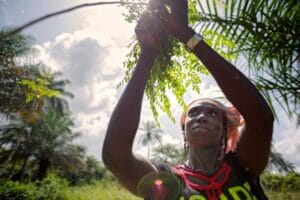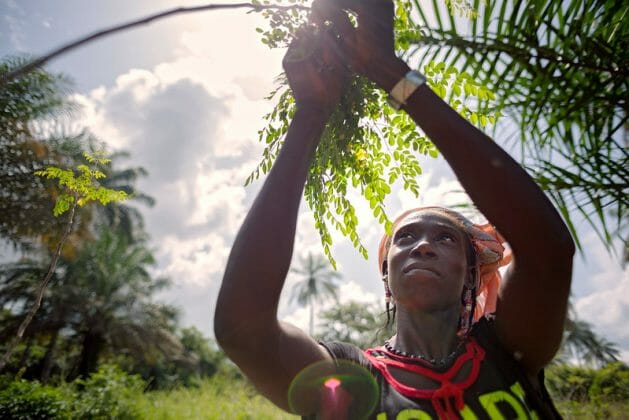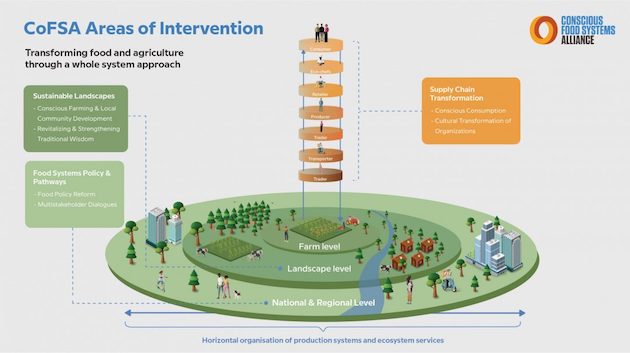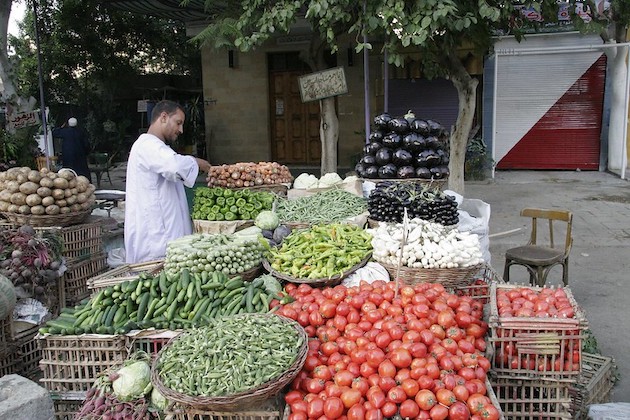
Biodiversity, Civil Society, Climate Action, Environment, Global, Headlines, Sustainable Development Goals, TerraViva United Nations
Prof. Helen Roy, Prof. Peter Stoett, and Prof. Anibal Pauchard – Co-Chairs of the IPBES Invasive Alien Species Assessment
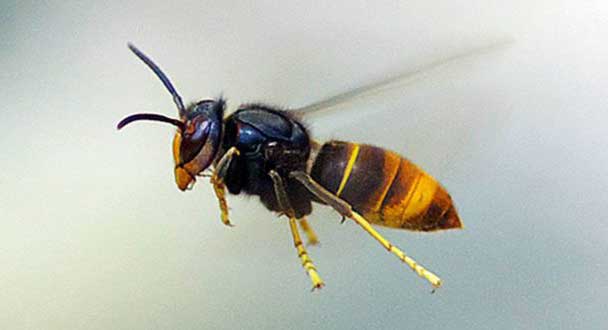
The Asian hornet, also known as the yellow-legged hornet or Asian predatory wasp, is a species of hornet indigenous to Southeast Asia. It is of concern as an invasive species in some other countries.
– Nature is declining rapidly, and the rate of species extinction is accelerating. The Global Assessment Report of the Intergovernmental Science Policy Platform on Biodiversity and Ecosystem Services (IPBES) (2019) revealed that one million species are at risk of extinction. Invasive alien species, alongside climate change, changing use of sea and land, direct exploitation of organisms and pollution, are all major causes of the unprecedented and ongoing declines in biodiversity and ultimately the nature crisis that we are facing now.
Biological invasions defined
Species have been introduced through human activities around the world for centuries. These species, introduced intentionally and unintentionally into regions within which they would not naturally occur, are termed alien species. Following their introduction, some of these alien species establish and spread causing adverse, and in some cases irreversible impacts. This subset of alien species is termed invasive alien species. Across Europe alone there are more than 14 000 alien species, including many different plants and animals, and a proportion of these are invasive. There are many ways in which invasive alien species cause problems for other species – for example through predation, competition, transmission of disease or hybridisation. Invasive alien species are implicated in many extinctions worldwide, especially on islands which are particularly vulnerable to biological invasions.
Prevention underpins the global target to mitigate the impacts of invasive alien species
Adopted in 2022 the Kunming-Montreal Global Biodiversity Framework recognises the threat of invasive alien species to biodiversity and ecosystems through Target 6:
Eliminate, minimize, reduce and/or mitigate the impacts of invasive alien species on biodiversity and ecosystem services by identifying and managing pathways of the introduction of alien species, preventing the introduction and establishment of priority invasive alien species, reducing the rates of introduction and establishment of other known or potential invasive alien species by at least 50 percent, by 2030, eradicating or controlling invasive alien species, especially in priority sites, such as islands.
Target 6 acknowledges that preventing the arrival of alien species by managing pathways of introduction is the most effective approach to mitigating the impacts of biological invasions. However, managing established invasive alien species is also important and many possible approaches can be adopted to sustainably address the threat of biological invasions.
Citizen science: an important tool for tracking invasive alien species
Monitoring and surveillance are critical to informing both prevention and management, and play an important role in mitigating impacts at all stages of the biological invasion process. Citizen science is one of the many tools that can contribute to monitoring and surveillance of invasive alien species. This involves volunteers in data collection and in some cases analysis and interpretation. The profile of citizen science is rising and its value in supporting research and public engagement with science is widely recognised. Additionally, innovative approaches, including the use of smartphone apps for reporting invasive alien species, and the use of emerging tools such as artificial intelligence to support participants with species identification are also contributing to the popularity of citizen science. Many people are using the iNaturalist app to document their observations of plants and animals around the world. The Asian Hornet Watch app contributes to early warning of Vespa velutina and has underpinned the successful eradication of this hornet in the UK.
“Citizen science not only provides valuable data, it can increase awareness of the threats of biological invasions, foster a sense of community ownership and stewardship, and empower individuals to take action to protect their local environment.”
Empowering people to take biosecurity action
Citizen science not only provides valuable data, it can increase awareness of the threats of biological invasions, foster a sense of community ownership and stewardship, and empower individuals to take action to protect their local environment. Many citizen science approaches include information on biosecurity which encourages people to take action to reduce their part in spreading invasive alien species.
Celebrating collaborations through the IPBES thematic assessment of invasive alien species and their control
Global collaboration and partnerships are critical to addressing the threats of environmental change including biological invasions. The IPBES thematic assessment of invasive alien species and their control, prepared over the past four years by 86 leading experts from all regions of the world and across many disciplines, will constitute the first comprehensive and evidence-based assessment of invasive alien species. It will be considered by the member States of IPBES at their tenth Plenary session in August 2023 and represents a significant step forward in addressing the urgent and complex issue of biological invasions.
The report will present and critically evaluate the available evidence on the trends, drivers and impacts of biological invasions on people and nature. Furthermore, it will outline key management and policy options to achieve the targets set by the Kunming-Montreal Global Biodiversity Framework and the 2030 Agenda for Sustainable Development on biological invasions. This IPBES thematic assessment report on invasive alien species and their control will become an indispensable tool for governments, civil society, Indigenous Peoples and local communities, the private sector and all those seeking to address the issue of biological invasions. Effectively preventing and controlling invasive alien species will have far-reaching consequences in protecting the incredible diversity of life on Earth and ultimately contributing to the quest to reverse biodiversity loss.
Prof. Helen Roy is an ecologist at the UK Centre for Ecology & Hydrology, United Kingdom.
Prof. Peter Stoett is dean and professor at the Faculty of Social Science and Humanities, University of Ontario Institute of Technology, Canada.
Prof. Anibal Pauchard is a professor at the Faculty of Forest Sciences, University of Concepción, Chile, and the Institute of Ecology and Biodiversity, Chile.
IPS UN Bureau

